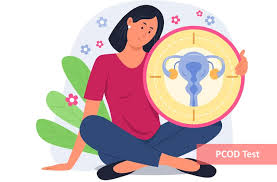Women Above 25 Should Schedule Routine Check-Ups to Detect PCOS Early And Avoid Infertility
Untreated PCOS can lead to infertility, but assisted reproductive technologies like egg freezing, In vitro fertilization (IVF), and Intrauterine insemination (IUI) offer women the chance to conceive successfully and experience motherhood Pune: Currently, a large number

Untreated PCOS can lead to infertility, but assisted reproductive technologies like egg freezing, In vitro fertilization (IVF), and Intrauterine insemination (IUI) offer women the chance to conceive successfully and experience motherhood
Pune: Currently, a large number of women over 25 are unaware of the signs of Polycystic Ovary Syndrome (PCOS), which can lead to irregular or absent periods, excessive hair , type 2 diabetes, obesity, heart disease, stroke, blood clots, and sleep apnea and difficulty conceiving. These conditions can significantly impact physical and mental health. Studies estimate that 5-10% of women aged 24-34 and approximately 25% of women aged 34-44 experiencing infertility have PCOS. If left untreated, PCOS can cause infertility. However, fertility treatments like egg freezing, IVF, and IUI offer women with PCOS the possibility of successful conception and motherhood
Polycystic ovary syndrome (PCOS) is a common hormonal condition that is known to affect women of reproductive age. The symptoms of this condition are excessive facial and body hair, insulin resistance, oily skin and acne, weight gain, development of cysts in the ovaries, and infertility. According to various studies, PCOS is one of the leading factors of infertility in women because of irregular periods and a lack of ovulation. “After 25, many women tend to neglect regular health screenings, which can lead to difficulties in conceiving. Often, ultrasound examinations reveal that they have polycystic ovary syndrome (PCOS), a condition they may not realize they have because they overlook signs such as abnormal body and facial hair growth and irregular menstrual cycles. Unfortunately, by the time they discover their untreated PCOS is contributing to infertility, it can be too late. PCOS disrupts normal menstruation and ovulation since the ovarian follicles fail to release eggs. This condition also creates hormonal imbalances and cysts on the ovaries, complicating pregnancy efforts,” said Dr Karishma Dafle, Fertility Consultant, Nova IVF Fertility, Pune
“The prevalence of PCOS has risen significantly over the past decade, with a 50% increase in cases. This surge has impacted women of all ages and body types, with a particularly concerning rise among teenagers. While PCOS can present challenges, it’s important to note that 80% of women with PCOS can achieve pregnancy with proper treatment. Lifestyle factors play a significant role, with 75% of obese women and 25% of thin women affected by PCOS. Additionally, 50% of women in pre-pregnancy and 20% of women during post-pregnancy have experienced PCOS symptoms as per my OPD. These numbers highlight the widespread nature of PCOS and underscore the importance of early diagnosis and appropriate management.”
The early onset of PCOS in young women is likely due to a combination of genetic predisposition, hormonal imbalances, and lifestyle factors. Sedentary lifestyles, unhealthy diets, and increased stress levels can contribute to the development of PCOS, particularly in young people” , said Dr. Preethika Shetty, Consultant Obstetrician & Gynecologist, Motherhood Hospitals, Kharadi.
Dr Karishma added, “Approximately 5-10% of women aged 24-34 and around 25% of those aged 34-44 experience infertility linked to unmanaged PCOS. The incidence of PCOS is increasing by about 5-10%, attributed to sedentary lifestyles, insufficient physical activity, and stress levels. Women with untreated PCOS often attempt natural conception for years without success. Some may resort to ovulation-inducing medications for several months. If these do not yield results, they might choose procedures like intrauterine insemination (IUI) or in vitro fertilization (IVF) for embracing motherhood.”
“Despite these challenges, successful pregnancies are possible for 80% of women with PCOS. Early diagnosis and treatment are essential for preserving fertility and improving overall health. Regular check-ups can help identify PCOS early, enabling timely interventions. For pregnant women with PCOS, it’s crucial to monitor blood sugar regularly, maintain a healthy weight, follow a balanced diet, stay active, and work closely with their healthcare provider. These steps can help manage PCOS symptoms, reduce the risk of complications, and ensure a healthy pregnancy.” – added Dr. Preethika Shetty, Consultant Obstetrician & Gynaecologist, Motherhood Hospitals, Kharadi
“Women with PCOS should seek timely treatment and follow a well-balanced lifestyle consisting of a nutritionus diet, exercise, proper sleep routine, and practice relaxation techniques such as yoga and meditation. Moreover, stay in touch with your expert and go for regular screening after 25 to manage this condition and prevent infertility. Women, take charge of your health, right away!” concluded Dr Karishma Dafle.






